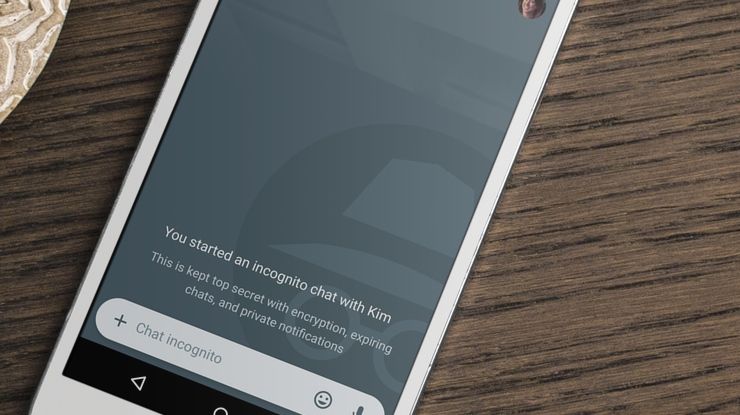Google's new messaging service isn't as private as Snowden would've liked
Your Allo chats are accessible by Google's algorithms by default

Messaging app Allo hit digital shelves today, and while the app's fun take on sending missives and smart integration with Google tech is appealing, those sold on secure messaging are giving it some scrutiny. That includes privacy advocate and NSA whistleblower Edward Snowden.
Though originally announced as a completely discreet service at this year's Google IO conference, Allo still can peek at your messages by default to power its algorithms, The Verge reports.
Nicknaming the app "Google Surveillance," Snowden quipped on Twitter that Google's latest piece of tech doesn't get his proverbial seal of approval, simply ending his post with, "Don't use Allo."
Rather than deliver on 100% private messaging from the get-go, Allo logs your conversations in Google's servers. While this helps the app to make better use of its Google Assistant algorithm, it also potentially subjects messages to search and/or seizure by the company itself, or law enforcement agencies.
Specifically, any information sent over the service is saved transiently. This means it remains stored on Google's servers until all recipients delete that particular message from their device's chat history. In other words, you may delete your end of a conversation, but if your friend doesn't, the chat is still saved.
Granted, this means that every text, picture, and voicemail sent over Allo won't necessarily wind up in Google's backlog until the end of time, but limiting what information others are privy to will take some coordination.
Is it secret? Is it safe?
Google already backpedaled a tad on Allo's privacy features in May, clarifying that encrypted messages must be turned on manually in the app's Incognito Mode. The mode still offers full encryption to those who opt into the feature after downloading Allo.
Get daily insight, inspiration and deals in your inbox
Sign up for breaking news, reviews, opinion, top tech deals, and more.
Private data in consumer tech elevated in the public eye in recent years following concerns of government surveillance programs and legal battles over granting law enforcement backdoor access to electronics - most notably Snowden's Prism uncovering in 2013 and last year's San Bernardino iPhone encryption case.
As demand for more secure messaging increases, however, more companies have begun offering or are considering ways to incorporate encryption. Facebook, for example, is reportedly working on Messenger app encryption, though that would come at the cost of chatbot functionality.
One of the biggest pushes for encryption on mobile messaging happened this spring, when communication bigwig WhatsApp added full end-to-end encryption on any messages sent through its service, covering over a billion users in the process.
Whether users spurn Google Allo over its questionable privacy remains to be seen, but we at least know Snowden won't download it any time soon.
